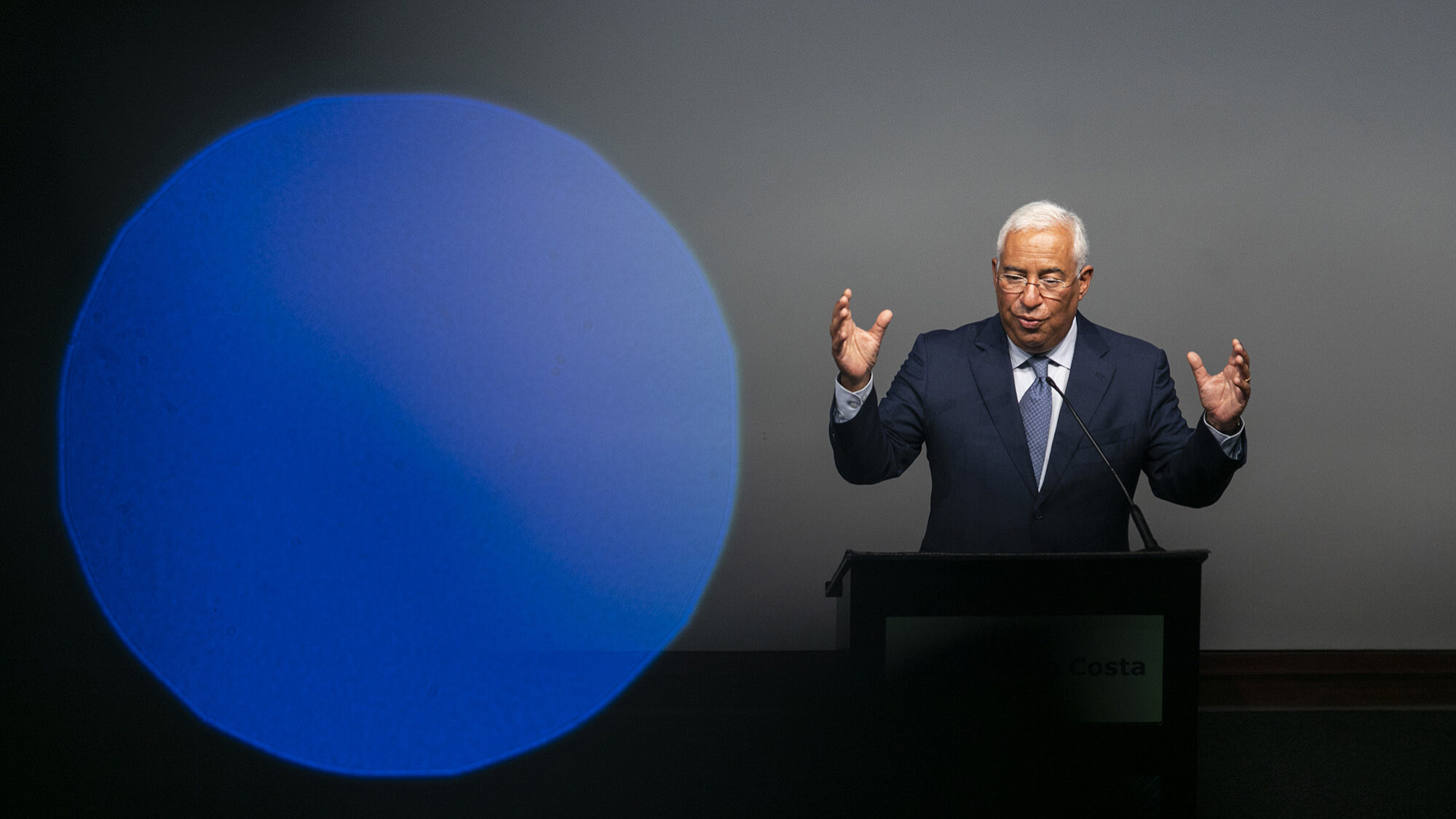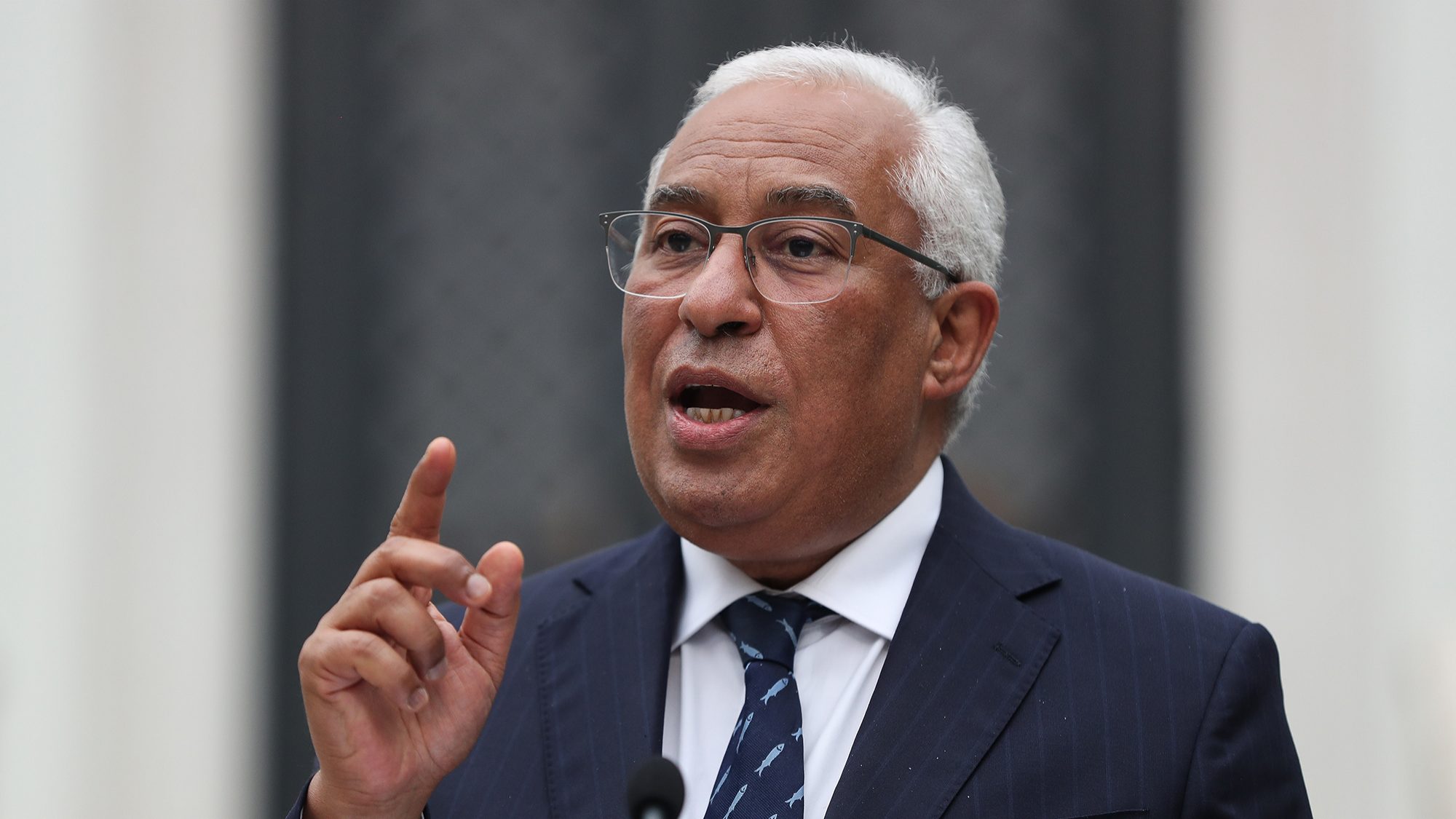PM wants solution for Finland, Sweden NATO membership by Madrid summit
Russia's military aggression against Ukraine led the two Nordic countries, both EU member states, to decide to break with a long-standing policy of military non-alignment and apply for NATO.
Portuguese prime minister António Costa has said in The Hague that it would be “great” if a solution to Turkey’s current veto of Finnish and Swedish membership of NATO could be found by the Madrid summit in a fortnight’ time.
“It is clear that if, by the Madrid summit, the reasons that lead Turkey to block the entry of Finland and Sweden can be overcome, great,” he told the press, after an informal meeting of some heads of state and government of Alliance member countries with NATO’s secretary-general in the Netherlands.
While stressing that “if this is not possible by Madrid, there is no point in dramatising it”, António Costa said that an agreement before the 29 and 30 June summit in the Spanish capital “would be a great message of strength”, not only that “NATO remains united, but is also strengthened by the accession of two new member states”.
If this does not happen in the two weeks remaining before the summit, “surely it will be possible to overcome the dispute with time” by “negotiating and working and acting with diplomacy”, to respond to the questions raised at this time by Turkey, and which, “being related to terrorism, must be taken seriously”, he commented.
The head of government insisted that “the Madrid summit is fundamentally important” for the Allies to “approve the new strategic concept for the next 10 years” as well as “the investment plan and the reinforcement of NATO funding” in the next decade, stating that, along with the consolidation of the unity of the Atlantic Alliance, “this is the main theme” of the summit.
António Costa was speaking at the end of a working dinner for NATO heads of state and government with the Secretary-General of the Atlantic Alliance, Jens Stoltenberg, hosted by the prime ministers of the Netherlands, Mark Rutte, and Denmark, Mete Frederiksen, on Tuesday evening, about two weeks before the organisation’s summit to be held in Madrid on 29 and 30 June.
The meeting, held at the official residence of the Dutch head of government, was also attended by the prime ministers of Belgium, Alexander de Croo, Poland, Mateusz Morawiecki, and Latvia, Krisjanis Karins, and the president of Romania, Klaus Iohannis.
Russia’s military aggression against Ukraine led the two Nordic countries, both EU member states, to decide to break with a long-standing policy of military non-alignment and apply for membership of NATO.
However, Turkish President Recep Tayyip Erdogan has announced his veto of the membership of Sweden and Finland, which he accuses of supporting Kurdish militants considered terrorists by Turkey, namely the Kurdistan Workers’ Party (PKK), demanding that Stockholm and Helsinki change their policies.
Stoltenberg, who described the concerns of Turkey, the ally that has suffered the most terrorist attacks on its territory, as “legitimate”, has led diplomatic efforts to overcome this blockade “as soon as possible” so that Sweden and Finland can soon become full members of the Atlantic Alliance.
The NATO secretary-general, who visited the two Scandinavian countries this week, said the Madrid summit was never a deadline for a political decision on Sweden and Finland’s membership, but admitted he hoped “progress” would be made.
At the summit later this month, Nato leaders are expected to adopt the alliance’s new strategic concept for the next decade, including strengthening deterrence and defence, addressing transnational threats – cyber and climate – and deepening partnerships with democratic allies in Europe and Asia in a new geopolitical context triggered by Russia’s invasion of Ukraine on 24 February.

